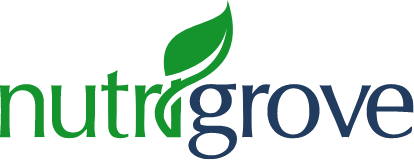Non-GMO & Vegan: Decoding Supplement Labels
When it comes to selecting the right supplements, understanding the labels is critical for making informed decisions about your health. Two common labels that you may encounter are Non-GMO and Vegan. Although they may seem straightforward, there is a lot to consider when it comes to these labels. In this section, we will explore the importance of Understanding Non-GMO and Vegan Labels and provide you with a non-GMO and Vegan guide to help you make the best choices for your health.
Key Takeaways:
- Non-GMO and Vegan labels are crucial for making informed decisions about your health.
- Understanding these labels involves knowing the certification process and standards involved.
- Choosing Non-GMO and Vegan supplements can have potential benefits for your health and the environment.
- Navigating these labels involves identifying trustworthy products and finding the right supplements for your needs.
- Certifications can help ensure the quality and integrity of the products you choose.
What is Non-GMO Labeling?
If you're interested in choosing healthier supplements, deciphering Non-GMO and Vegan labels is a crucial first step. The Non-GMO label indicates that a product is free from genetically modified organisms, which are created through genetic engineering. This label is important because GMOs can be harmful to the environment, and potential long-term effects on human health have not yet been thoroughly studied.
In order for a product to be labeled as Non-GMO, it must meet specific certification standards. This includes robust testing protocols and traceability measures to ensure that the product is truly free from GMOs. Non-GMO certification is granted by third-party organizations that uphold strict standards for product quality and integrity.
Non-GMO Standards Explained
Non-GMO certification standards require that a product contains no more than 0.9% of genetically modified material. In addition to testing requirements, there are also stringent production standards in place, such as using dedicated non-GMO equipment and facilities. The Non-GMO label is a clear indication that a product has met these standards, and you can trust that it is a healthy and ethical choice.
When considering supplements with the Non-GMO label, it's helpful to look for additional certifications such as USDA Organic, which ensures that a product is made from organic ingredients grown without harmful pesticides or fertilizers.
Understanding Vegan Labeling
Deciphering the Vegan label on supplement products can be confusing, but it's essential for understanding what you're putting into your body. To be considered Vegan, a product must not contain any animal-derived ingredients. This includes common additives like gelatin, honey, and dairy products. Additionally, Vegan products must not be tested on animals.
The Vegan certification process involves strict standards and guidelines that must be met before a product can receive this label. The certifying organization will thoroughly review the ingredients list and manufacturing process of the product to ensure it meets their criteria.
What are the Standards for Vegan Products?
To be considered Vegan, a product must meet the following standards:
- Free of animal-derived ingredients
- Not tested on animals
- Manufactured in a facility that does not handle animal products
Meeting these standards ensures that the product follows the ethical and moral considerations of a Vegan lifestyle. If you're looking to incorporate Vegan supplements into your routine, it's important to look for reliable Vegan certifications like that of the Vegan Society or the Certified Vegan label.
Is Vegan Labeling the Same as Vegetarian Labeling?
No, Vegan labeling and Vegetarian labeling are not the same. While both labels signify that a product does not contain meat, animal by-products, or animal-derived ingredients, Vegetarian products may still contain dairy, eggs, or other animal-derived ingredients.
When choosing supplements, it's important to look for specific Vegan labeling to ensure that no animal ingredients are included in the product.
The Importance of Non-GMO and Vegan Labels
When it comes to selecting supplements, understanding the significance of Non-GMO and Vegan labels is critical. These labels provide essential information about the contents of your supplement, and choosing to prioritize them can have a considerable impact on your health and the environment.
Non-GMO labeling ensures that the product does not contain any genetically modified organisms, which can be harmful to your health in the long run. Moreover, Vegan labeling guarantees that the product contains no animal-derived ingredients, making it a suitable option for individuals following a plant-based lifestyle.
Supplement producers must meet rigorous certification standards before they can use the Non-GMO and Vegan labels on their products. Therefore, selecting supplements with these labels is an assurance that the product meets specific requirements and is of high quality.
By considering the importance of Non-GMO and Vegan labels, you can make informed decisions about the supplements you consume, prioritize your well-being and ethical beliefs, and support environmentally sustainable practices.
Navigating Non-GMO and Vegan Labels
Deciphering supplement labels can be a daunting task, especially when it comes to Non-GMO and Vegan designations. That's why we've put together this non-GMO and Vegan guide to help you navigate the process.
Look for Reliable Certifications
One of the best ways to ensure you're selecting Non-GMO and Vegan supplements is to look for reliable certifications. The Non-GMO Project and Vegan Action are two organizations that offer trusted certifications for these labels. Look for their logos on product packaging when making your selection.
Read the Ingredients List
Another important step in navigating Non-GMO and Vegan labels is to read the ingredients list. Look for items such as soy, corn, and canola, which are commonly genetically modified. If they are not labeled as Non-GMO, it's best to steer clear.
Consider Third-Party Testing
Some companies may claim their products are Non-GMO and Vegan without providing any certification or testing. In these cases, it may be helpful to do your research and look into third-party testing to confirm the accuracy of these labels.
By following this non-GMO and Vegan guide and taking these steps to navigate supplement labels, you can make informed decisions and prioritize your health and values.
Understanding Non-GMO and Vegan Certification
When shopping for supplements, it's important to understand the certification process for Non-GMO and Vegan products. The certification process involves various organizations that set specific standards to ensure the quality and integrity of the products you choose.
One example of a Non-GMO certification organization is the Non-GMO Project, a non-profit organization that provides third-party verification for products that meet their standard for avoiding genetically modified organisms. The verification process involves thorough testing and evaluation of every aspect of a product's ingredients and manufacturing process.
Similarly, Vegan certifications are provided by organizations such as the Vegan Awareness Foundation. They certify products that meet specific criteria, including the absence of animal products, byproducts, and testing.
Why Certification Is Important
Choosing supplements with Non-GMO and Vegan certifications can provide peace of mind in knowing that your products meet high standards for quality and ethical considerations. These certifications can also help you avoid products that contain potentially harmful ingredients or are produced in ways that are harmful to the environment.
It's important to note that not all products may have these certifications, so it's important to do your research and look for reliable certifications when making your selection.
By understanding the Non-GMO and Vegan certification process and the organizations involved, you can make informed decisions about the supplements you consume and prioritize your health and values.
Benefits of Choosing Non-GMO and Vegan Supplements
Choosing Non-GMO and Vegan supplements can have numerous benefits for your overall health and well-being. By opting for these labels, you can ensure that the products you are consuming are free from genetically modified organisms and animal by-products. This can lead to a variety of potential benefits, including:
Enhanced Health
Non-GMO and Vegan supplements are often made with high-quality, whole food ingredients that can provide essential vitamins, minerals, and nutrients for optimal health. These supplements can support a healthy immune system, improved digestion, and increased energy levels. Additionally, since Non-GMO and Vegan supplements are free from potential harmful substances, they may also reduce the risk of negative side effects.
Ethical Considerations
For those who follow a Vegan lifestyle, choosing products that align with their values is crucial. By selecting Vegan supplements, you can ensure that no animals were harmed in the making of the product. This can have a positive impact on animal welfare and the environment as a whole.
Environmental Impact
Choosing Non-GMO and Vegan supplements can also have positive environmental impacts. Since Non-GMO ingredients are free from synthetic pesticides and herbicides, they may be better for the environment than genetically modified crops. Additionally, by avoiding animal by-products, Vegan supplements can help reduce the environmental impact of animal agriculture.
Overall, choosing Non-GMO and Vegan supplements can provide a variety of potential benefits for your health, ethical considerations, and the environment. When selecting supplements, be sure to look for reliable certifications and consider the potential benefits of these labels.
Conclusion
In conclusion, Understanding Non-GMO and Vegan Labels is essential for making informed decisions about the supplements you consume. By deciphering these labels, you can prioritize your health, values, and the well-being of the planet.
When selecting your next supplement, make sure to look for reliable certifications and consider the potential benefits of choosing Non-GMO and Vegan supplements. These choices can support your overall health, ethical considerations, and potential environmental impacts.
Thank you for taking the time to read our guide on Understanding Non-GMO and Vegan Labels. We hope it has provided you with valuable insights and guidance on navigating the world of supplement labels. Remember, by prioritizing your health and values, you can make informed decisions that benefit not only yourself but also the world around us.






